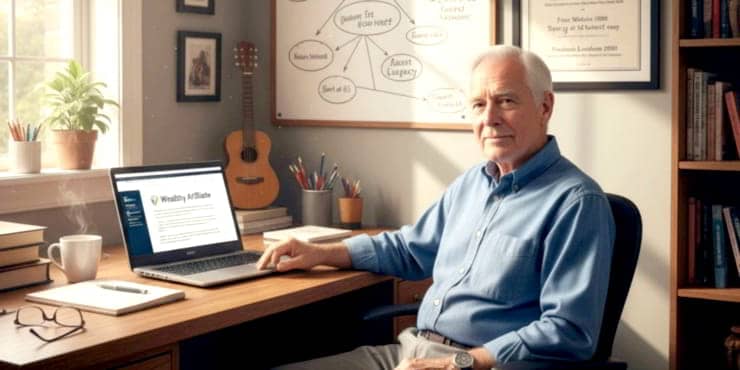The Essence Of Task Management: Scheduling Priorities For Ultimate Productivity

Estimated reading time: 8 Min
Why does it matter whether you prioritise time or tasks? Here we explore the basics of task management by scheduling priorities to get things done.
Time and tasks might seem like two sides of the same coin, but they’re really quite different.
Time is a measure of, well, time — hours, minutes, seconds.
Tasks are the work, chores, or activities you need to get done.
Mixing them up can throw a serious wrench in your productivity.
So, untangling this knot is the first step to getting things in order.
It’s pretty simple.
If you’re always watching the clock, you’ll likely miss out on actually getting things done.
Of course, if you’re just blasting through tasks without a thought to how long they take, you might end up getting low priority stuff done and even end up burned out.
Think of it like this: prioritising tasks then scheduling them helps you see the big picture.
It’s about deciding what’s important, blocking out time for everything important, creating a schedule, ensuring you get things done and meeting deadlines.
Tasks are all about the nitty-gritty details — making sure each specific job gets done, one by one.
The key to getting the most useful things done is to set clear task-based priorities.
When you ignore the difference between tasks scheduling, everything starts to blur.
Suddenly, you might find yourself staring at a long to-do list, wondering where all your time went.
Or, you might have your day perfectly scheduled but realise you didn’t actually finish any important work.
It’s like balancing on a seesaw — you need to adjust constantly to keep from tipping over.
So, learn to juggle both tasks and your schedule without dropping any balls, and you’ll see that sweet boost in your efficiency.
The Value of Time: Why Every Minute Counts
Time is more than just hours and minutes; it’s a limited resource that you can’t get back once it’s gone.
Although we can’t manage time in the strictest sense, since it just ticks away outside of our control, we can treat it like a budget.
We can schedule tasks within time, take action, and track results.
Every minute counts, and how you use those minutes can make or break your productivity.
Have you ever felt like the day went by in a blink and you’ve got nothing to show for it?
That’s what happens when time slips through your fingers unaccounted.
Scheduling tasks within time is about seeing the bigger picture.
Short-term planning helps you get through each day, while long-term scheduling sets you up for future success.
It’s like planting seeds for tomorrow’s harvest.
Budgeting your time for meaningful activities helps you achieve your long-term goals without the last-minute scramble.
Balancing your scheduling budget well influences more than just your work life.
Effective scheduling drastically changes your personal life, too.
When you schedule time purposefully, you create space for relaxation, hobbies, and quality time with family and friends.
That balance keeps stress levels down and mental health in check.
Scheduling tasks involves knowing when to say ‘no’ as much as it’s about scheduling your priorities.
Being committed to scheduling your tasks efficiently means understanding your limits.
Don’t overload your schedule with tasks just to fill the hours.
Prioritise what truly matters and let go of what doesn’t move the needle.
Every successful person swears by their scheduling skills.
It’s one of those non-negotiable habits that you need to develop if you aim to get anywhere in life.
Whether you’re juggling work, school, or personal projects, structuring your schedule smartly ensures you don’t just stay busy, but actually productive.
Scheduling: Getting Things Done Effectively
Getting things done boils down to handling your tasks the right way.
Without proper task management, even the best-planned schedules can crumble.
Tasks are the building blocks of your day, and handling them well is the cornerstone of productivity.

First off, prioritisation is your best friend; not all tasks are created equal.
Some are urgent, some are important, and others are just plain busywork.
The trick is to figure out which is which.
Tools like the Eisenhower Matrix can help you sort tasks by importance and urgency so you can tackle what’s critical first.
Delegation is another powerful tool.
You don’t have to shoulder everything alone.
Sharing the workload with colleagues or family members when appropriate, lightens your load and helps you focus on high-priority tasks.
It also fosters teamwork and makes the whole process more efficient.
Task management tools are absolute game-changers.
From traditional to-do lists to digital apps like Notion, having a way to track and organise your tasks can turn chaos into order.
These tools let you set deadlines, assign tasks, and keep everything in one place, so nothing slips through the cracks.
Effective task management also improves your ability to set realistic goals.
By breaking down larger projects into smaller, manageable tasks, you can make steady progress without feeling overwhelmed.
This method gives you clear milestones to hit, which can boost your motivation and give you that satisfying sense of accomplishment.
Paying attention to how you handle your tasks can have a significant ripple effect on your overall productivity.
When you manage tasks efficiently, you free up more time for important projects and reduce the stress that comes from looming deadlines.
It’s about working smarter, not harder.
Balance Prioritising, Scheduling and Task Management
Focus squarely on scheduling; it has its perks.
It helps you see the big picture and ensure you’ve allocated some time for everything from work to relaxation.
By setting specific time blocks, you keep your schedule organised and avoid the dreaded last-minute rush.
However, being too rigid with time can box you in and sometimes make you feel like your day is overly structured.
On the flip side, prioritising task management helps you zero in on completing the work itself.
This approach leads to more immediate accomplishments and boosts your sense of achievement.
But it’s easy to fall into the trap of overcommitting, which could leave you feeling frazzled and overwhelmed.
Relying solely on task management can also make it more challenging to maintain a healthy work-life balance.
Striking the right balance between getting things done and relaxing is key.
When you focus too much on one, the other can suffer.
Balancing both approaches ensures you’re productive without burning out.
Regularly setting aside time to reassess your priorities can keep you on track.
It’s about being flexible enough to adapt as needed while still keeping your eye on the end goal.
Scheduling keeps you grounded and organised, while task management helps you reach those incremental milestones.
Use them in tandem to create a cohesive productivity strategy that works for you.
Remember, productivity isn’t about doing more but doing what matters most efficiently and effectively.
Case Studies: Real-World Applications and Lessons
Let’s take a look at some real-world examples to see how different approaches to time and task management play out.
Take Steve Jobs, for instance.
He was known for his planning, and for sticking to his schedule, which allowed him to focus intensely on product development without distractions.
His ability to guard his schedule led to groundbreaking products and innovations.
On the other hand, think about a project manager at a bustling tech startup.
Their success often hinges on stellar task management.
Coordinating teams, meeting tight deadlines, and juggling multiple projects require pinpoint focus on individual tasks.
Those who master this thrive in fast-paced environments.
But not all stories are smooth sailing.
Failing to balance tasks in a schedule has its pitfalls.
For example, a writer focusing solely on task management might churn out loads of content but lose track of deadlines, causing missed publication dates and a lot of stress.
Taking lessons from these examples, the key takeaway is balance.
The most successful strategies involve a mix of both scheduling and task management.
This combined approach creates a dynamic way to handle your workload efficiently.
Practical Tips: Finding Your Balance

Daily routines can be a lifesaver when you’re trying to balance time and tasks.
Start by creating a morning routine that sets the tone for your day.
Whether it’s a bit of exercise, planning your tasks, or just enjoying a quiet cup of coffee, a consistent start helps you hit the ground running.
To keep your balance, try using the Pomodoro Technique.
This involves working for 25 minutes, then taking a 5-minute break.
It’s a game-changer for maintaining focus and avoiding burnout.
Plus, those short breaks give you time to include a mindfulness practice, exercise or reassess what needs your attention next.
There are countless tools and apps designed to help scheduling and tracking tasks.
I use notion along with Toggl App for its pomodoro timer which keeps me organised, moving forward, and they help to track progress.
Find what fits your style and stick with it.
Personal stories can offer some solid inspiration.
Take a leaf out of the book of successful entrepreneurs who balance time and tasks by sticking to a regimented schedule while leaving room for spontaneous tasks.
Their secret often lies in their ability to be flexible when things don’t go as planned.
That comes from clear prioritisation of tasks and generous scheduling.
Expert advice can also be super helpful.
Productivity gurus often suggest setting clear, achievable goals for each day.
Instead of a long, overwhelming to-do list, schedule 1 to 3 key tasks each day.
This doesn’t mean not schedulting anything else, but it makes sure you get something important done every day and makes your workload more manageable.
Finally, don’t forget to build in some buffer time.
Not every day will go as planned and having some extra time can help you handle unexpected urgencies without throwing off your whole schedule.
A mindset for flexibility is just as important as planning.
Summary: Scheduling Priorities For Ultimate Productivity
Mastering the art of balancing your schedule is all about creating a system that works for you.
By understanding the importance of prioritising and scheduling, you can build a strategy that helps you get more done without feeling overwhelmed.
Remember, scheduling your priorities gives you the big-picture view, letting you plan your day, week, or even month with purpose.
Task management, keeps you grounded, allowing you to dive into the nitty-gritty details that produce real results.
The secret sauce lies in focusing on your priorities and getting them done.
Remember to carve out blocks of time for focused work and rest.
Then, apply task management to make sure you’re knocking out those essential tasks during these blocks.
Don’t be afraid to try different methods and tools.
What works for someone else might not work for you, so it’s vital to find your own rhythm.
Stay flexible, adjust as needed, and keep refining your approach until you hit that sweet spot.
Ultimately, the goal is to be productive without losing your sanity.
By balancing scheduling and task management, you can achieve this equilibrium and find yourself being both effective and efficient in all aspects of life.
😉
Richard



![Are Wealthy Affiliate Hubs Revolutionising Website & Content Development In [year]? A futuristic and sleek digital workspace designed for website management and content creation - Wealthy Affiliate Hubs](https://ml0yvzumdtic.i.optimole.com/cb:k6B_.1fa14/w:740/h:370/q:mauto/https://solobusinessmind.com/wp-content/uploads/2024/12/A-futuristic-and-sleek-digital-workspace-designed-for-website-management-and-content-creation-Wealthy-Affiliate-Hubs740x370-O.jpg)



Hello Richard,
I think that I would be inclined to use the Pomodoro technique…
thank you for writing this. It is very timely.
Corinne :-)))
Hi Corinne. Excellent. I recommend implementing the Pomodoro Technique strictly (i.e., regularly) but not necessarily rigidly. By that I mean experiment a nit with the timer. I tend to use a range between 25 and 50 minutes depending on the task and how energetic I feel at the time. Best wishes, Richard